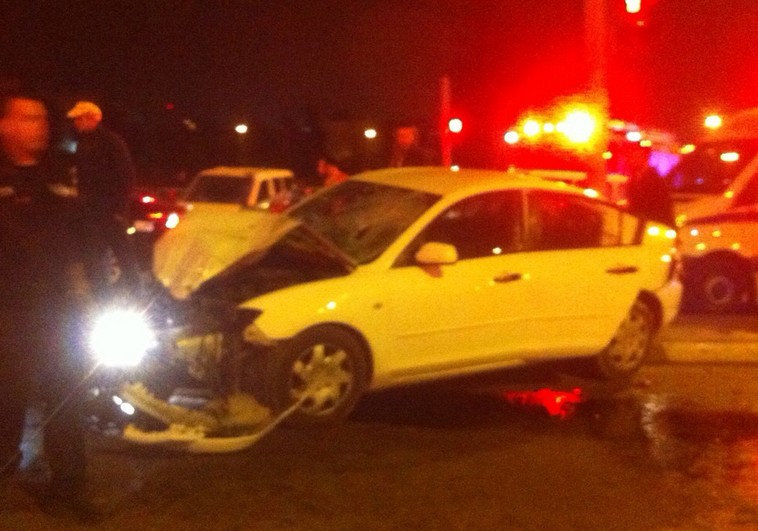'Dangerous roadways in Israel are worse than any security threat'
For the past three years, roadway fatalities have steadily risen and now the Knesset is looking to stop the trend.
 Scene of car accident in Jerusalem, April 15 , 2015(photo credit: POLICE SPOKESPERSON'S UNIT)Updated:
Scene of car accident in Jerusalem, April 15 , 2015(photo credit: POLICE SPOKESPERSON'S UNIT)Updated: